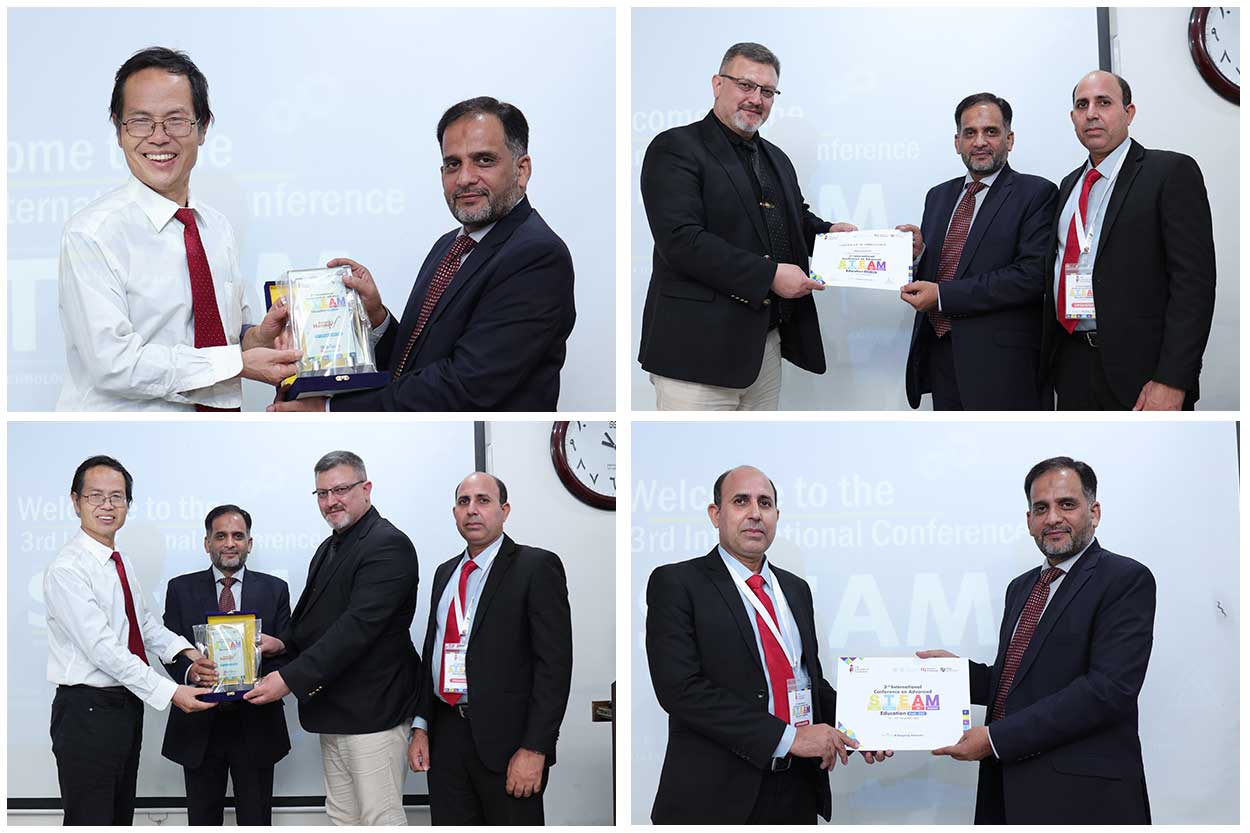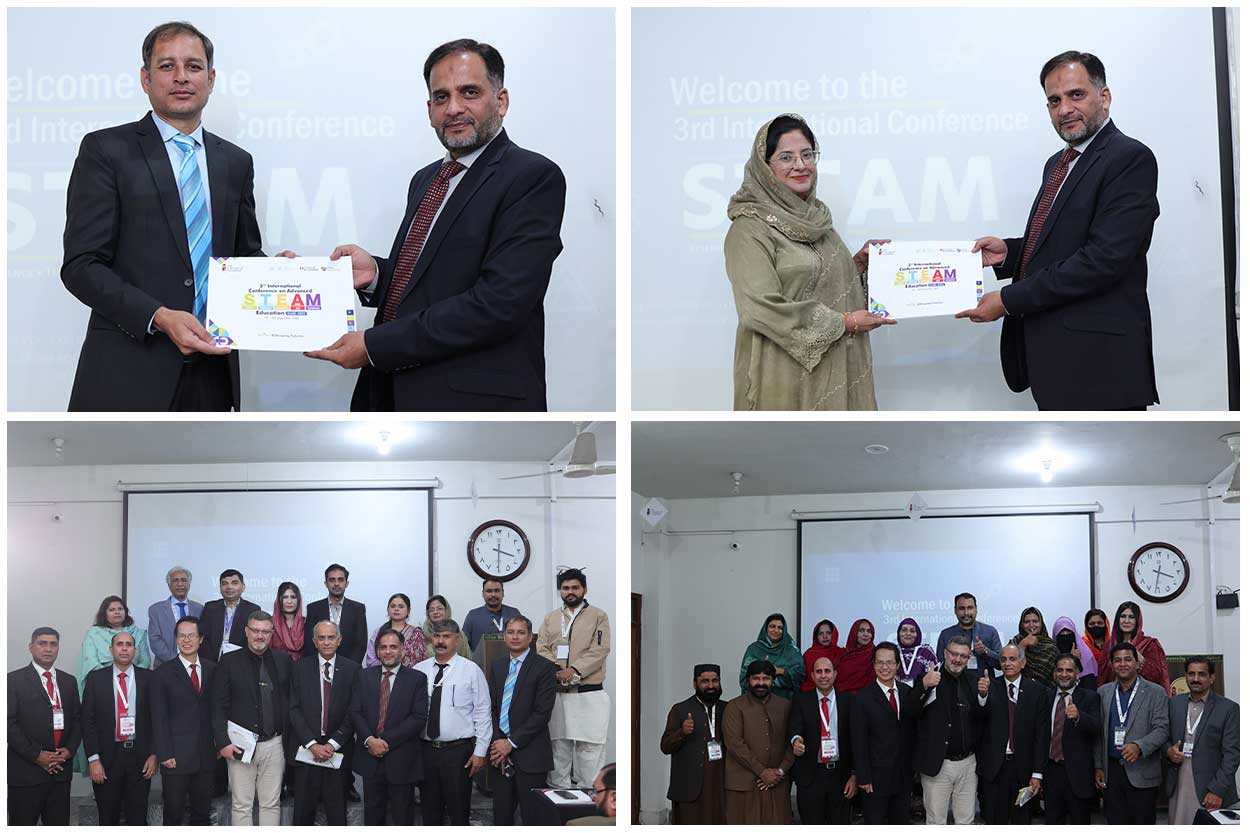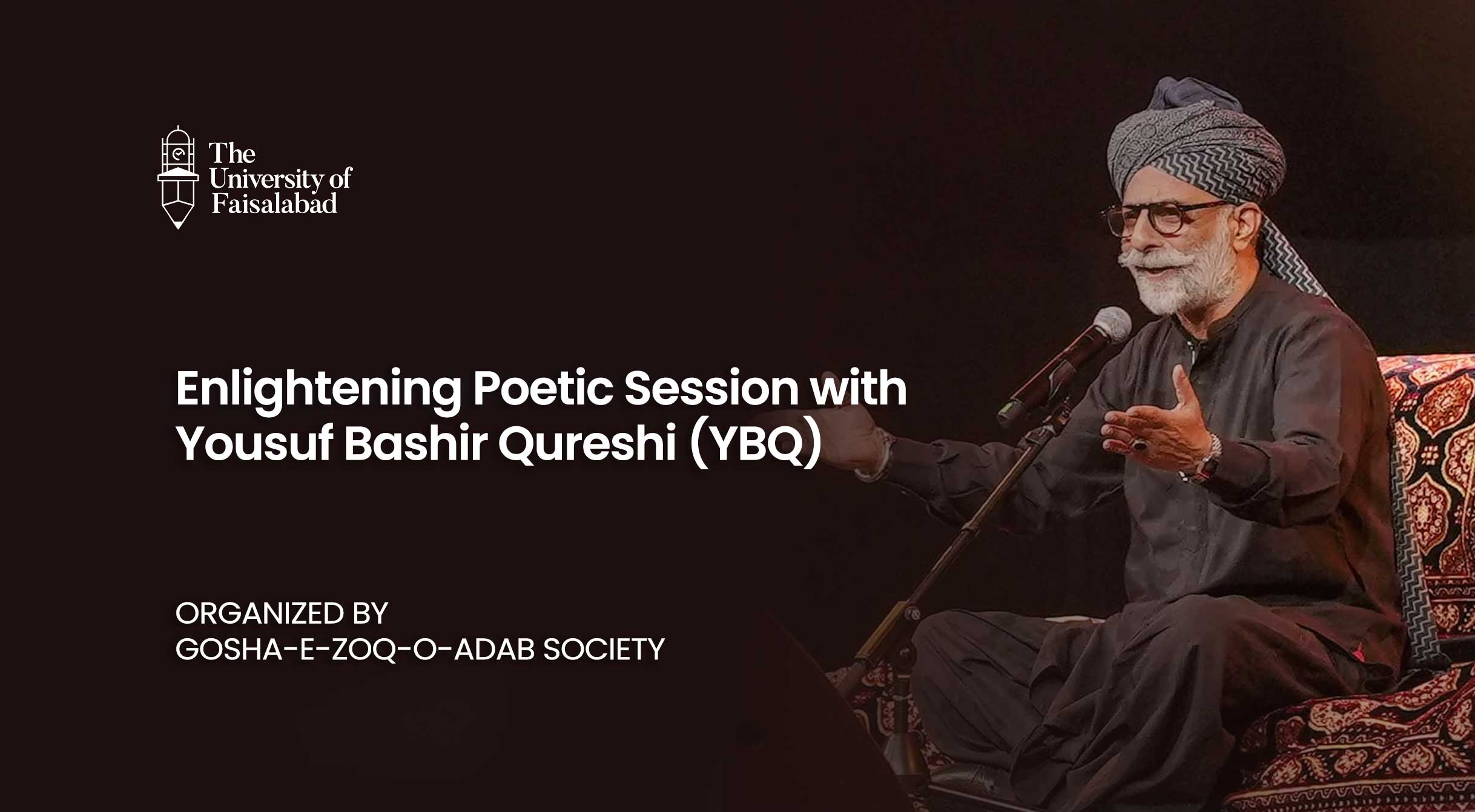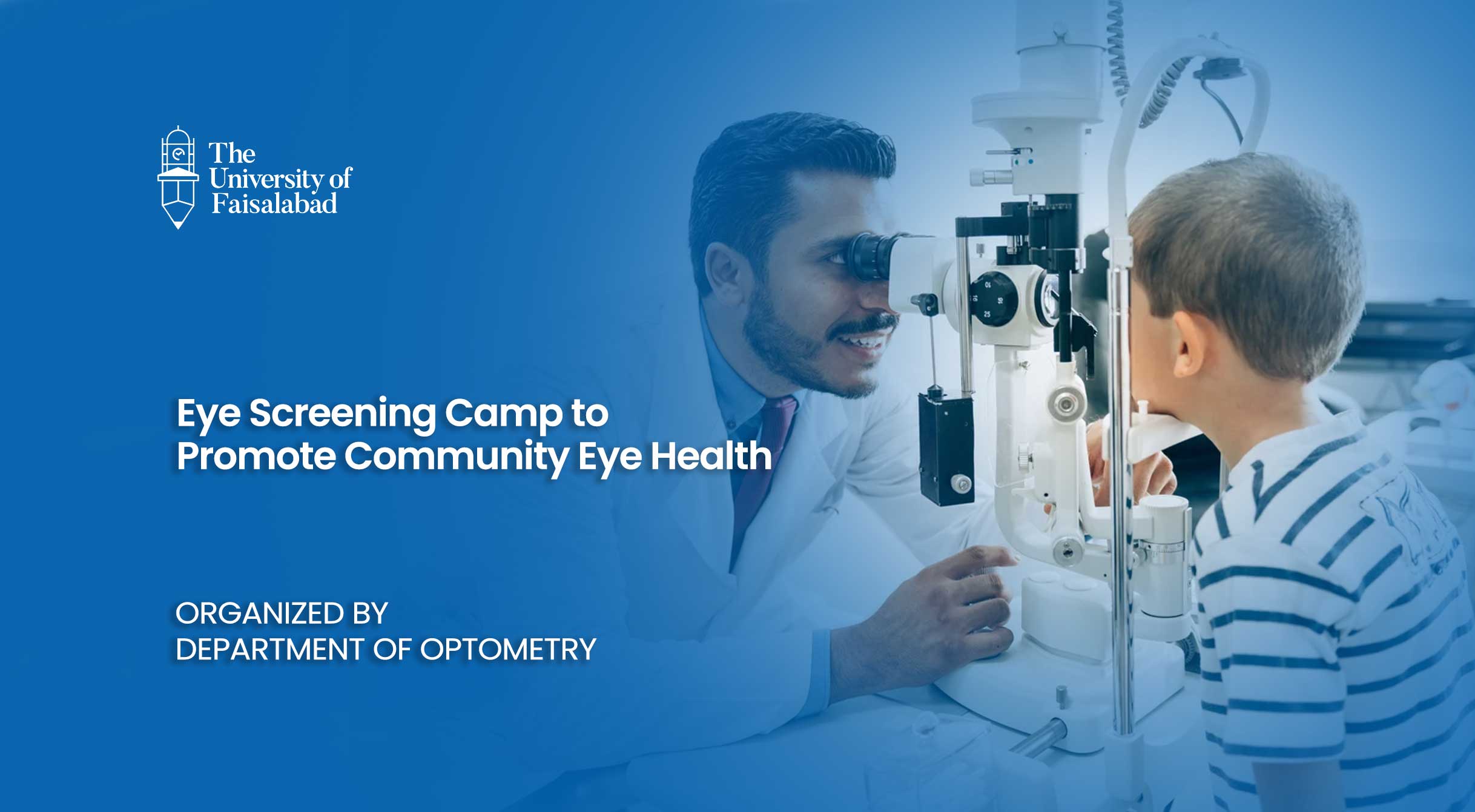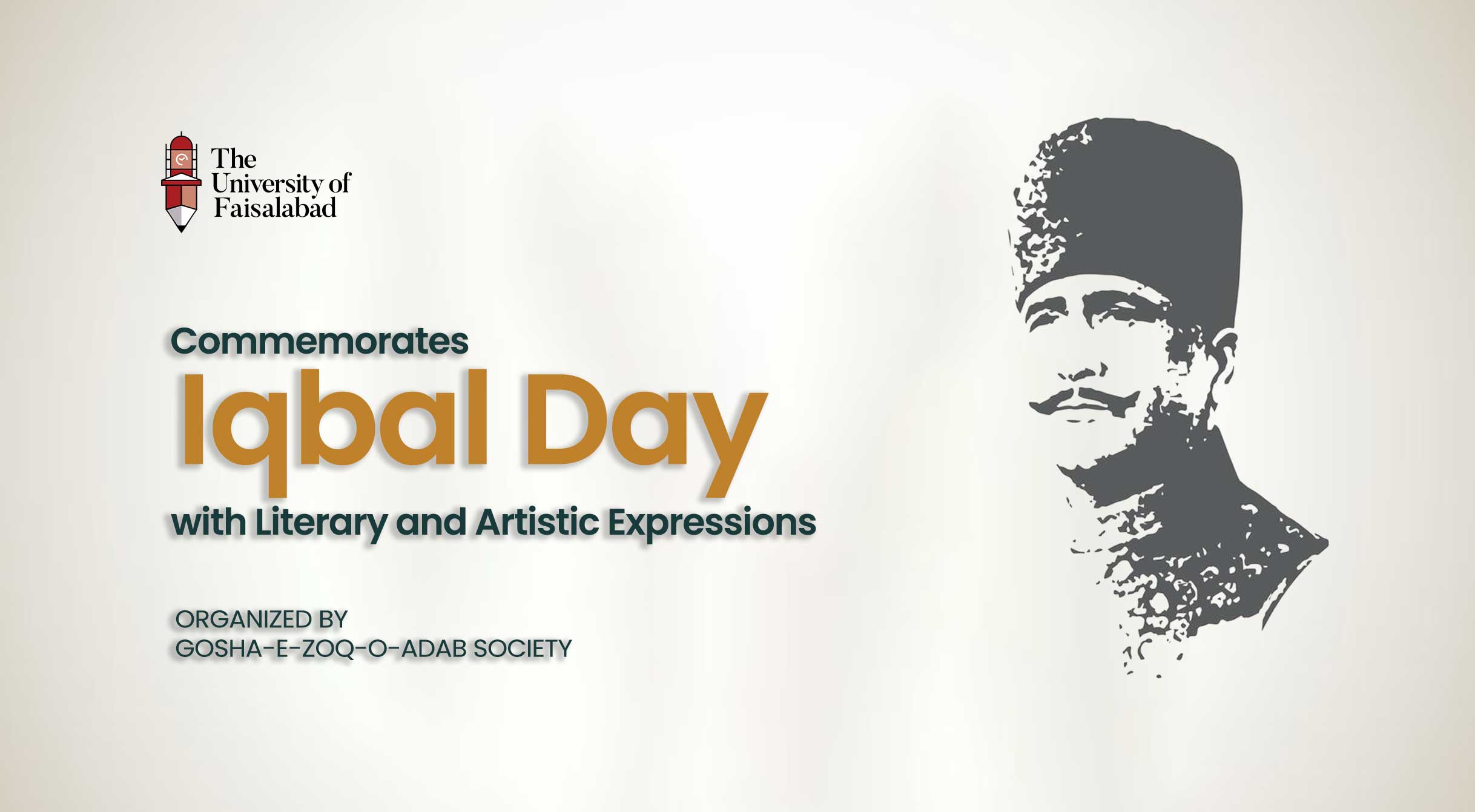
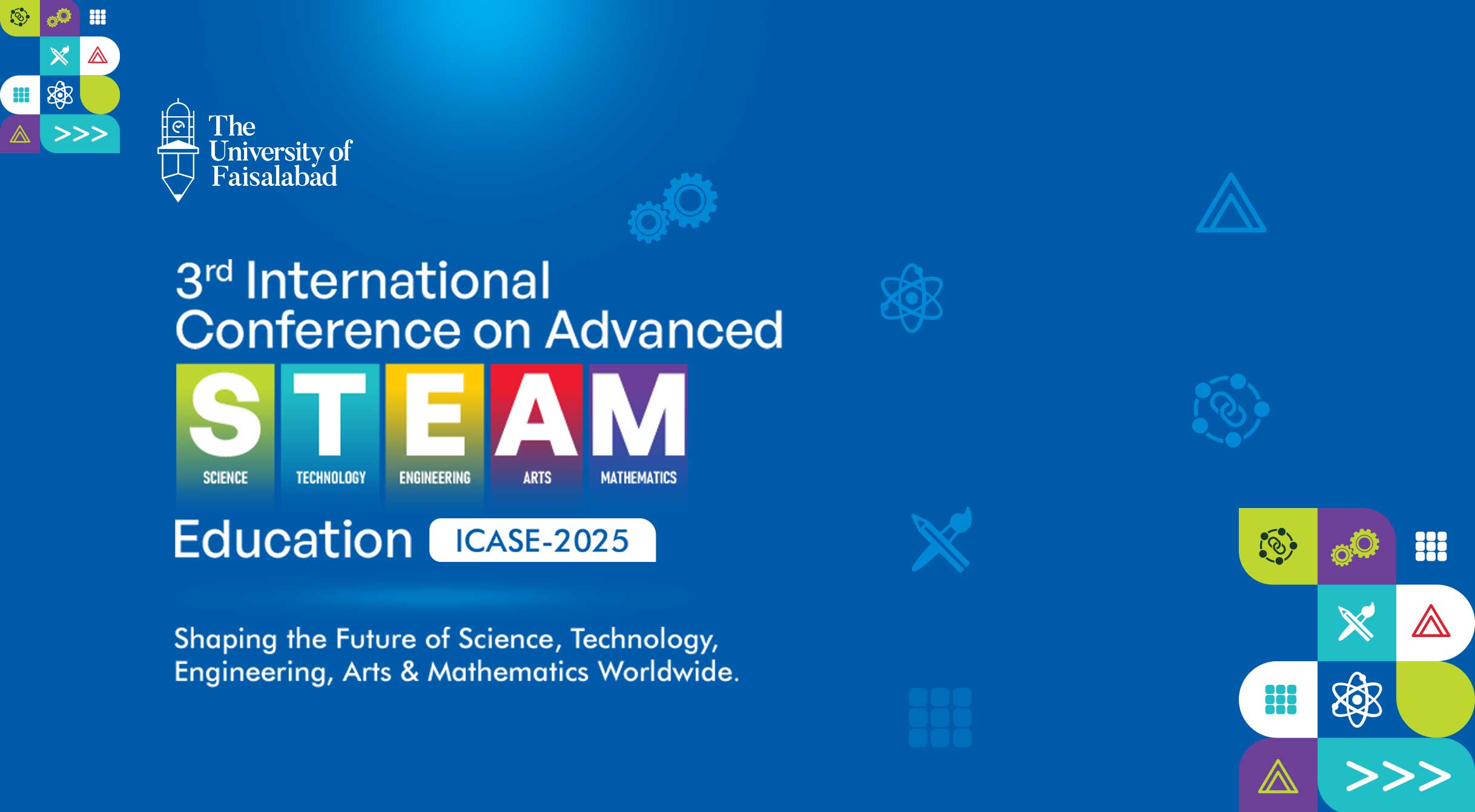
Publications
Good Health and Well-being
3rd International Conference on Advanced STEAM Education (ICASE-2025) Commenced at The University of Faisalabad
The 3rd International Conference on Advanced STEAM Education (ICASE-2025) officially commenced at The University of Faisalabad in a hybrid mode, bringing together eminent global scholars, technologists, policymakers, and industry leaders. Centered on its core theme—“Connecting Technology, Arts and Social Science for Shaping the Future”—the two-day conference solidified its status as a major global academic event, drawing researchers and education experts from over 15 countries besides Pakistan. The conference's international reach was further highlighted by the presentation of over 60 research papers and scholarly works by researchers and scholars from various nations around the world.
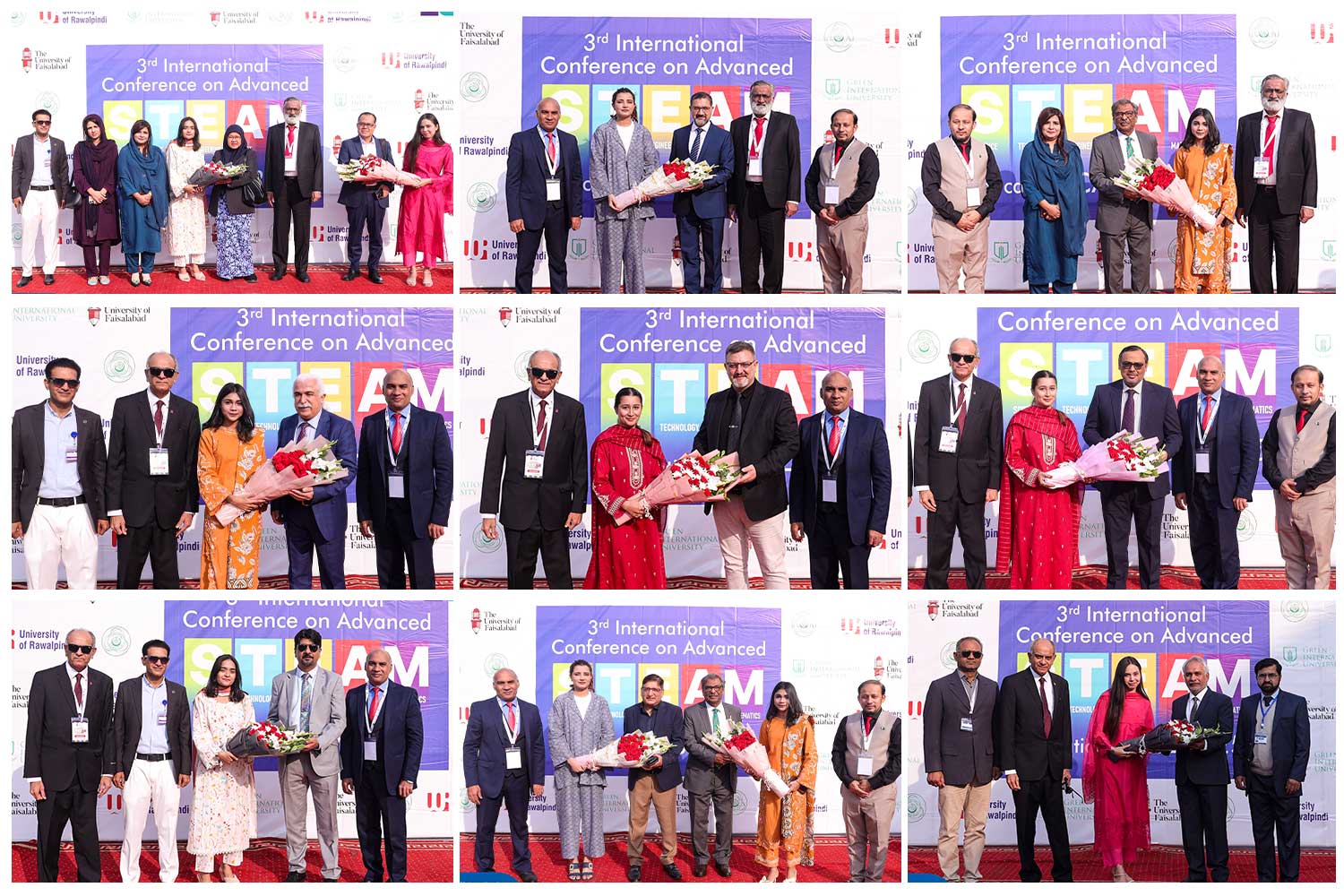
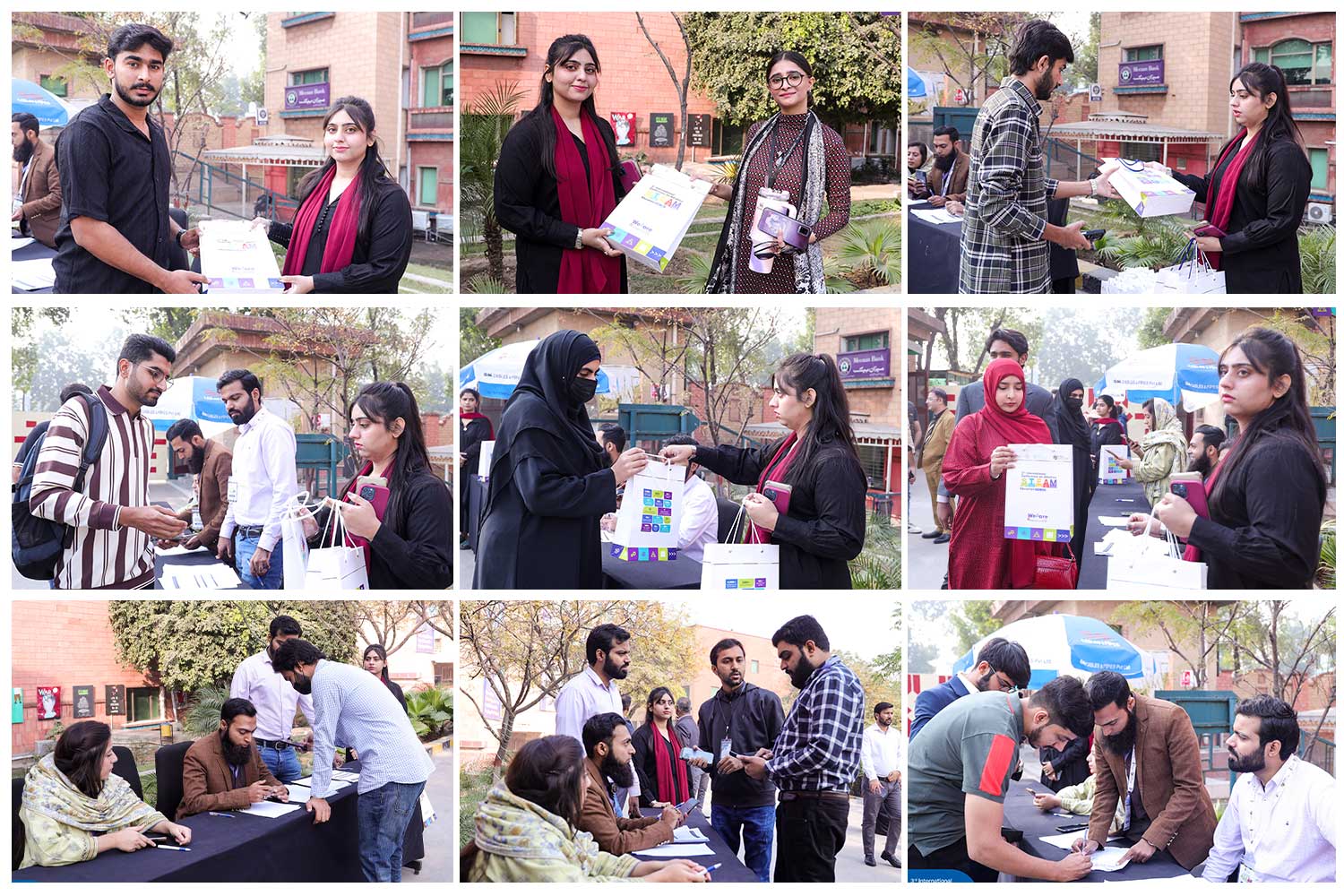
The inauguration began with the arrival of distinguished guests, including international speakers Prof Dr Dato' Narimah Samat, Universiti Sains Malaysia, and Prof Dr Asad Khattak, Zayed University, UAE. Senior leadership of TUF—Mr Muhammad Haider Amin, Chairman BOG; Dr Muhammad Hamza Amin, Vice Chairman BOG; Prof Dr Aman Ullah Malik, Rector; and Dr Zahida Maqbool, Registrar, warmly welcomed all delegates.
Prof Dr Aman Ullah Malik, Rector TUF, officially inaugurated the conference with a welcoming address to national and international delegates and guests. This was followed by an insightful talk by Prof Dr Majid Hussain, Conference General Chair, titled “ICASE: Turning Vision into Reality”, emphasizing collaborative STEAM advancements.
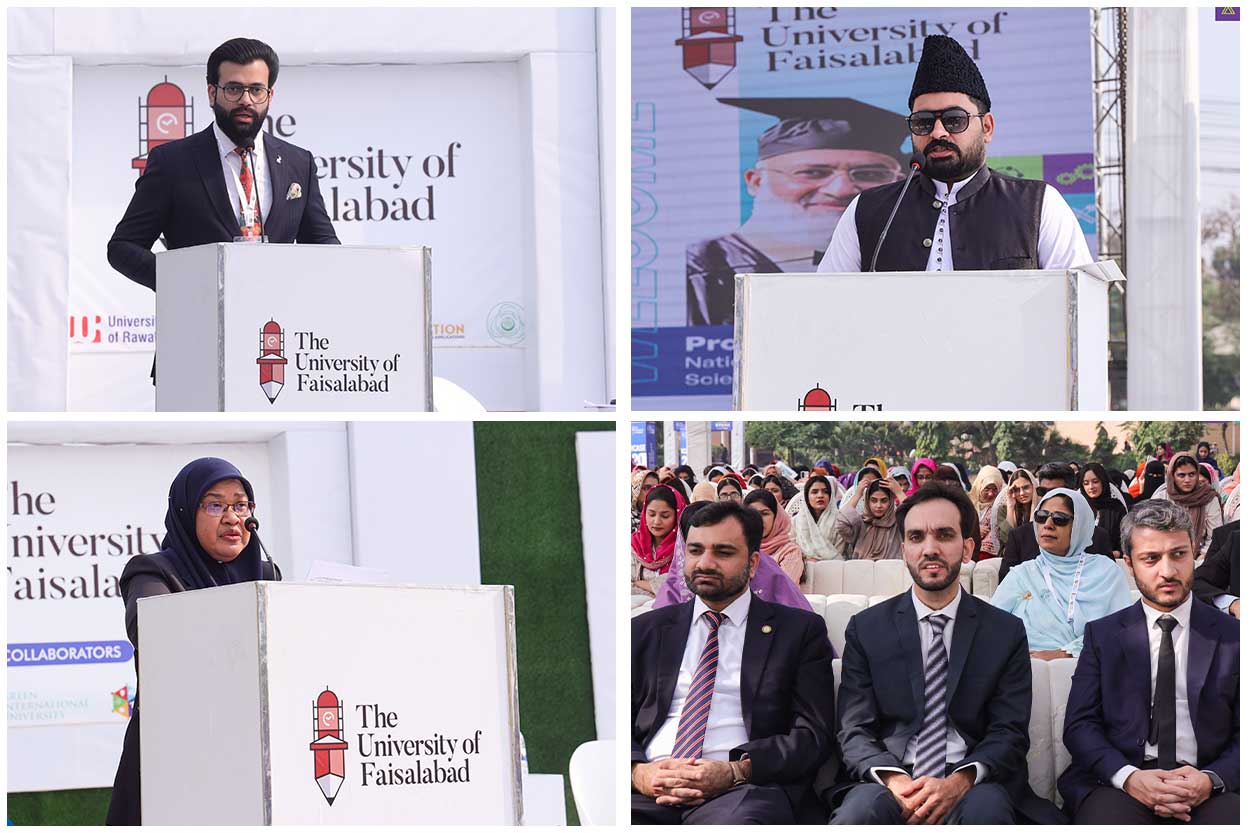
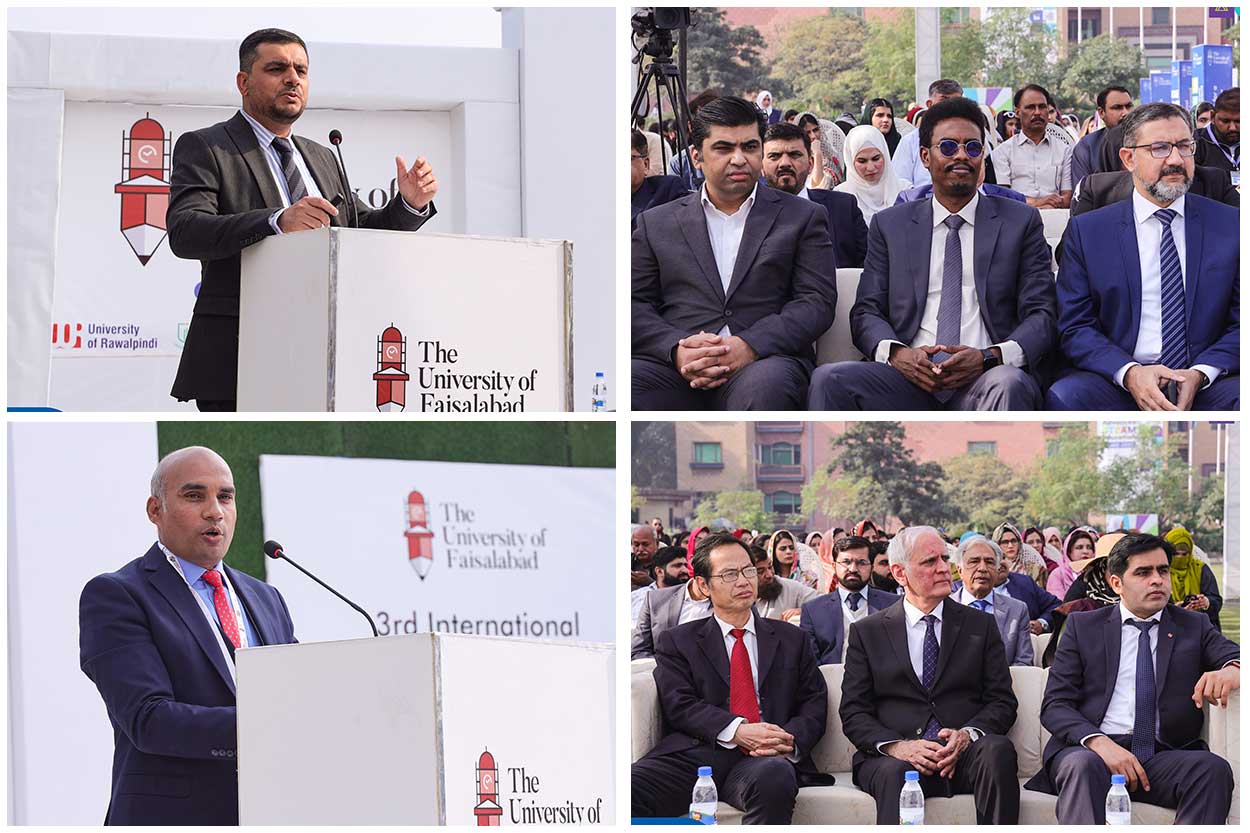
Two major keynote addresses enriched the session, Prof Dr Dato’ Narimah Samat presented “Bridging Disciplines, Shaping Future: Advancing STEAM Education for a Sustainable Tomorrow.” She emphasized that meaningful progress depends on bringing Technology, Arts, and the Social Sciences together within a unified STEAM framework. “When we integrate these disciplines, we build the foundations for environmental resilience, strengthen social wellbeing, and create educational systems that can truly respond to global challenges,” she remarked.
Prof Dr Asad Khattak delivered insights on “AI Applications in Healthcare and Education.” In his thought-provoking address, Prof Dr Asad Khattak stated, “AI is no longer a distant promise—its capabilities now surpass human performance in several diagnostic and analytical tasks.” He demonstrated how intelligent systems personalize treatment, accelerate clinical decision-making, and reshape learning environments. Stressing responsible adoption, he urged institutions to “prepare students and educators for an AI-driven world through literacy, guidance, and a strong human-centric framework.”
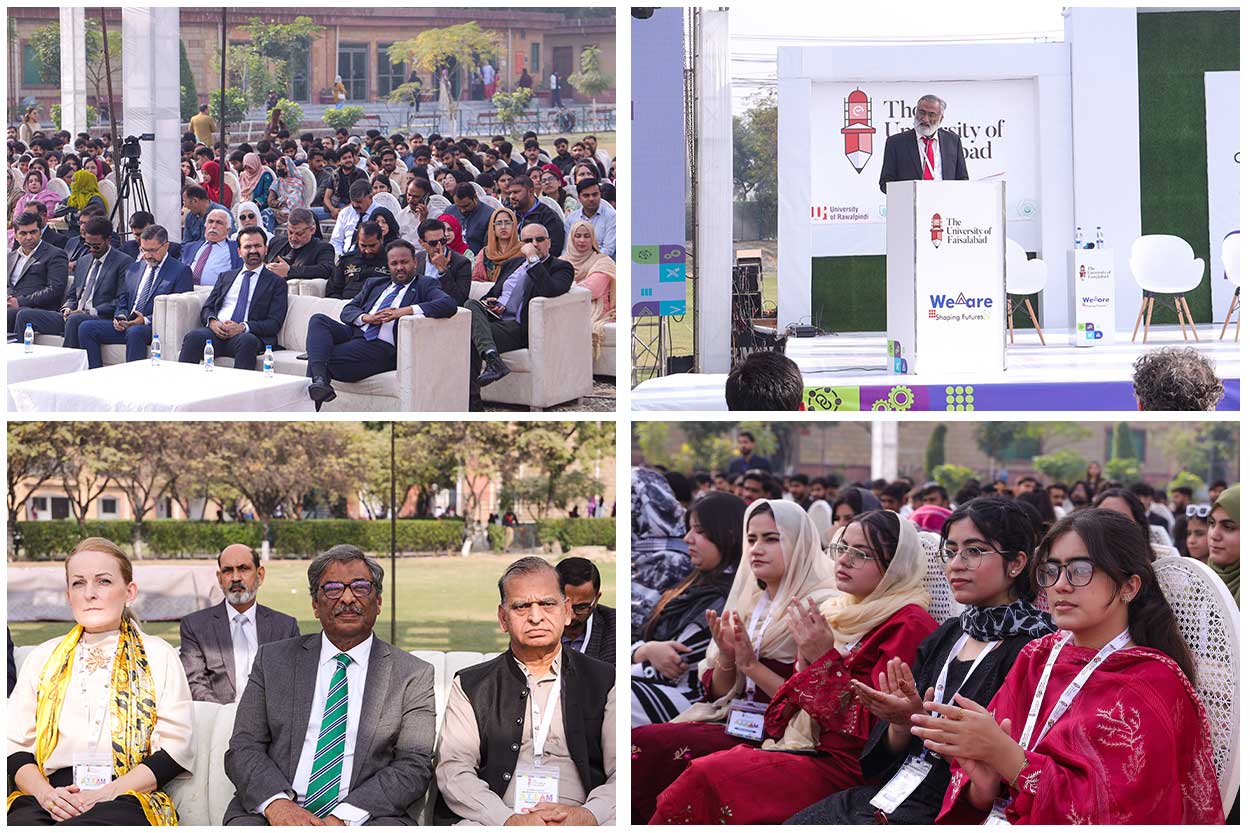
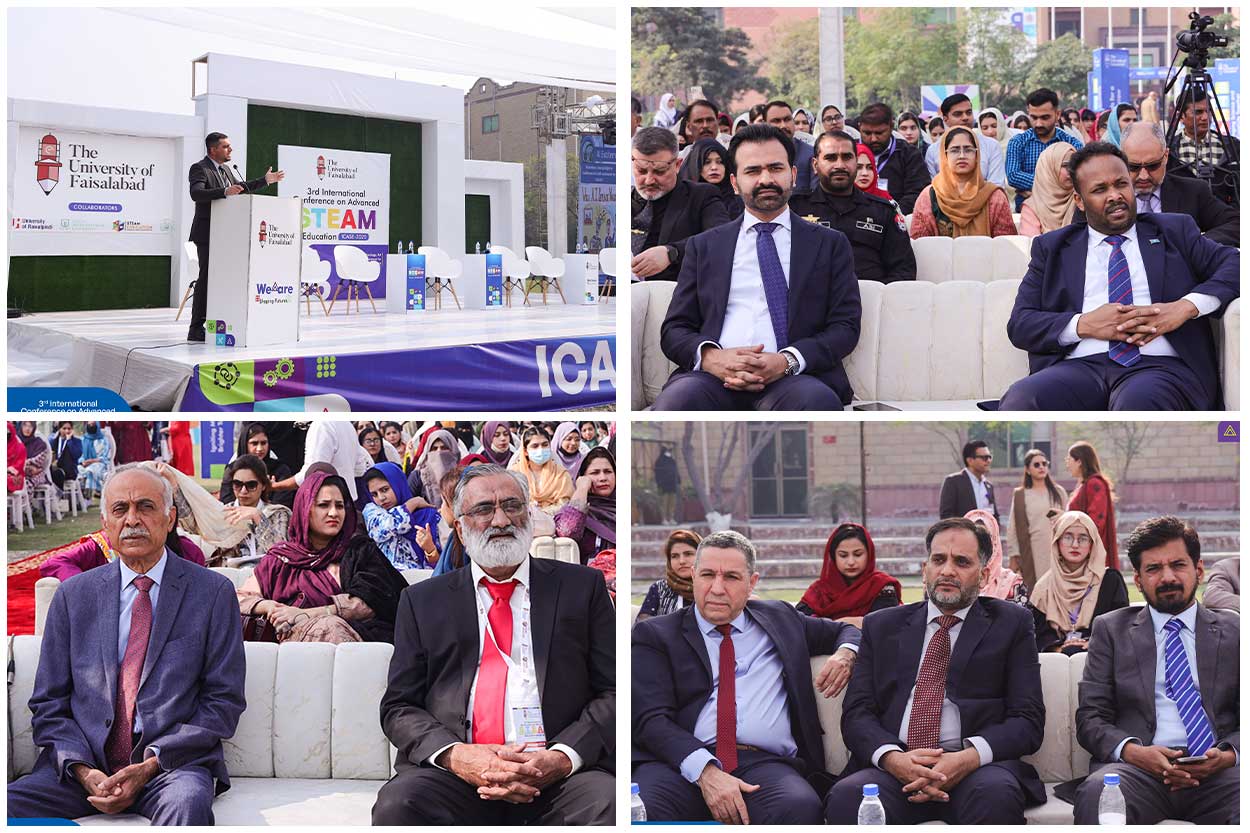
A major highlight was the high-powered panel discussion “Beyond Imagination: Shaping Tomorrow with AI and STEAM,” featuring experts from Turkiye, China, UAE, the UK, Pakistan, and Taiwan. The panel comprised six distinguished experts: Prof Dr Mustafa Aslan from Bilgi University, Turkiye; Prof Dr Zhou Deyi from Huazhong University, China; Mr Wahaj Siraj, CEO of Nayatel, Pakistan; Prof Dr Ahmed Seffah from Zayed University, United Arab Emirates; Prof Dr Kamran Munir from the University of the West of England, England; and Prof Dr Nadeem Javed from the National Yunlin University of Science and Technology, Taiwan. The discussion explored human-centric AI, the integration of Arts & Social Sciences into STEM, and future innovation frameworks.
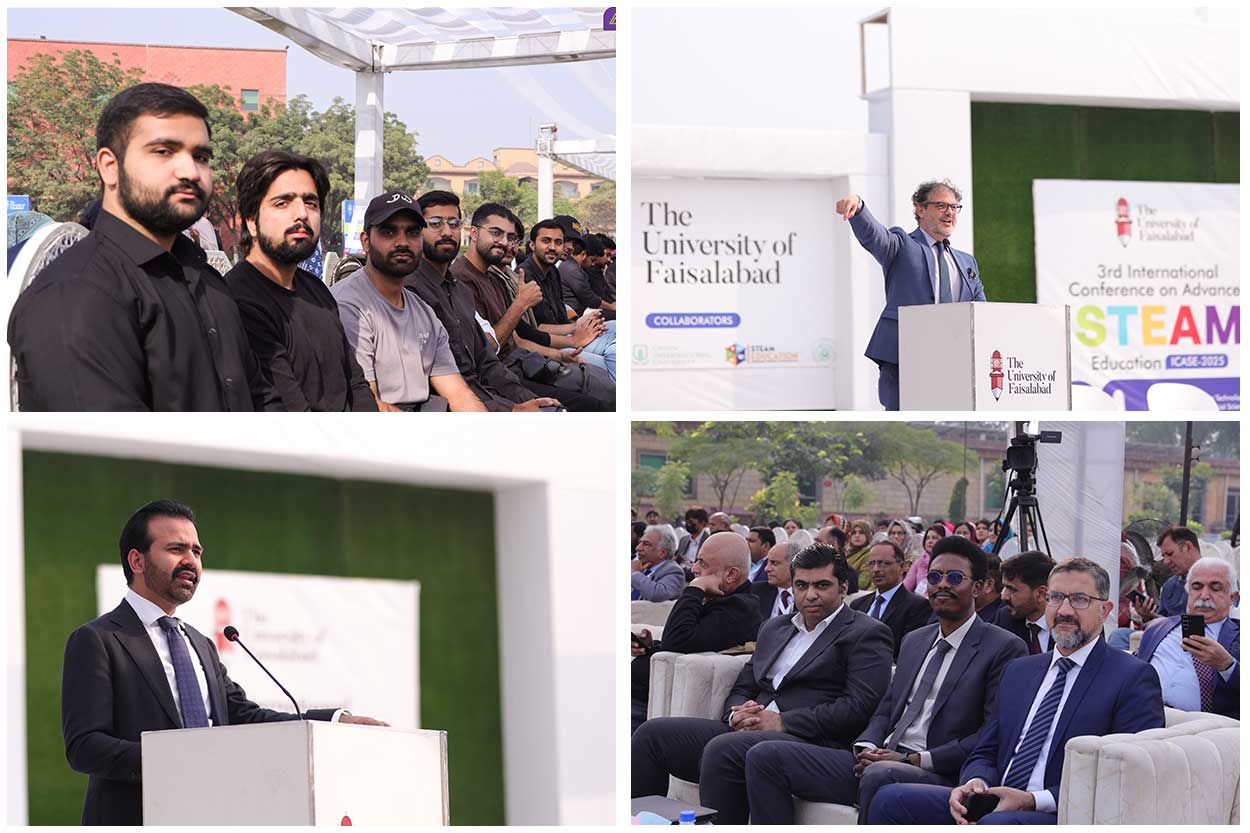
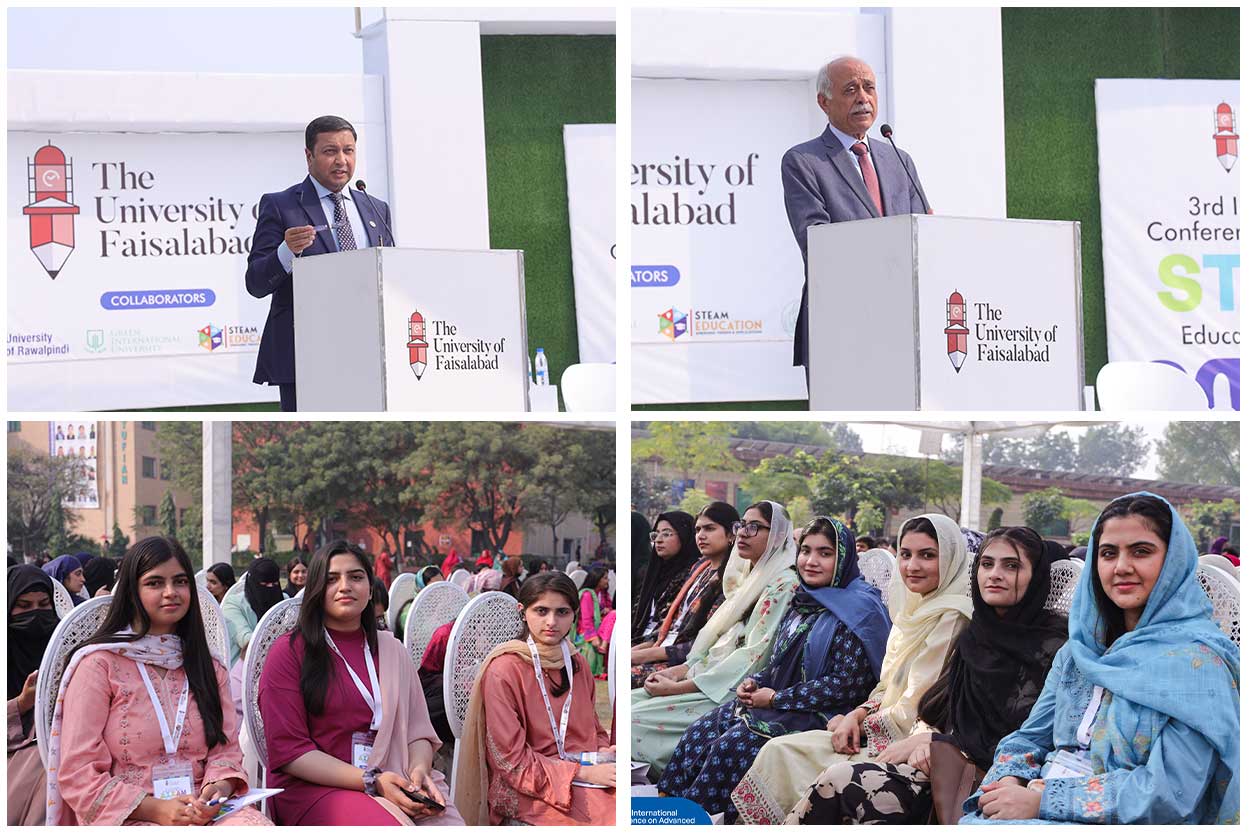
Addressing the gathering, His Excellency Mehmet Eymen Simsek expressed that “international collaboration is the foundation of meaningful educational progress.” He reaffirmed Turkiye’s commitment to supporting STEAM-based initiatives and praised ICASE-2025 for creating a platform that “strengthens global partnerships, innovation, and shared academic growth.”
Speaking on future academic directions, Prof Dr Iqrar Ahmad Khan highlighted that “Pakistan’s higher education sector must realign itself with emerging global technologies.” He stressed the urgency of STEAM integration through policy reform, faculty training, and institutional strengthening, noting that “our universities must be equipped to educate students for the technological realities of the coming decades.”
In his chief guest remarks, Prof Dr Muhammad Iqbal Choudhary emphasized that “the Islamic world stands at a critical moment where scientific advancement must be accelerated.” Representing COMSTECH, he urged research communities across OIC member states to collaborate on innovation, capacity building, and STEAM-aligned development. He stated that “our collective future depends on how effectively we empower science, technology, and education today.”
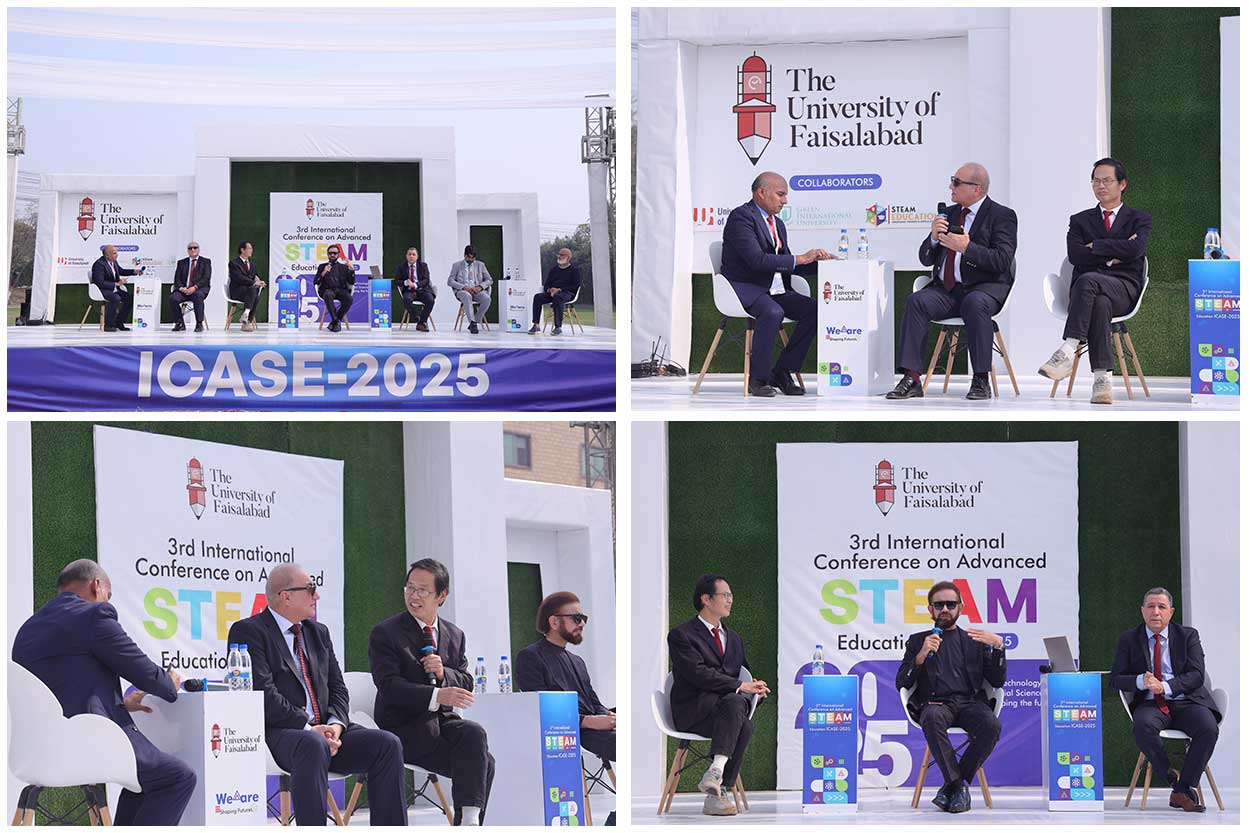
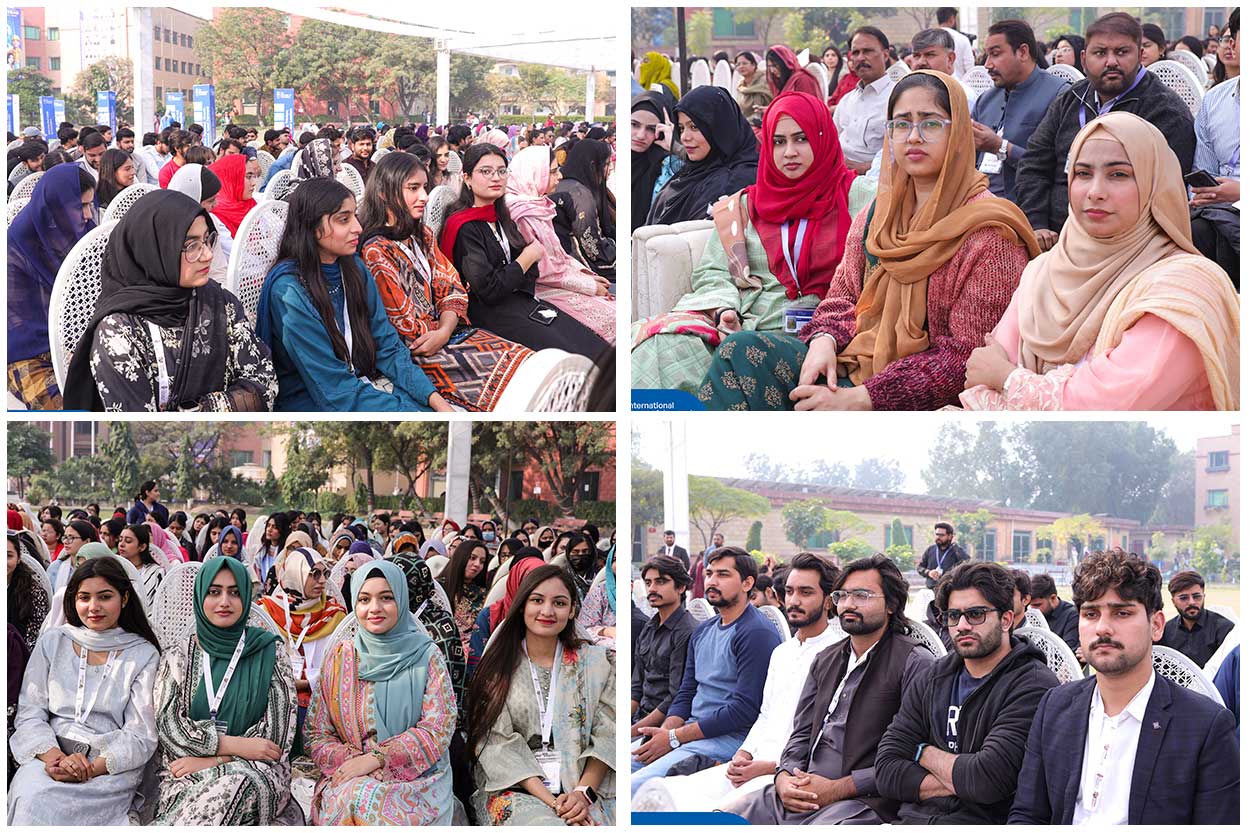
The Inaugural Session received strong international and governmental support through keynote policy messages: H.E. Mehmet Eymen Simsek, Consul General of the Republic of Turkiye, highlighted cross-border educational collaboration. Prof Dr Iqrar Ahmad Khan, Chairman PHEC, emphasized the strategic priority of STEAM integration in regional higher education. Prof Dr Muhammad Iqbal Choudhary, Coordinator General COMSTECH and Chief Guest, underscored the Islamic world’s collective responsibility in advancing scientific and technological excellence aligned with STEAM principles.
Closing the inaugural session, Mr Muhammad Haider Amin, Chairman BOG, TUF, acknowledged the global participation and stated, “ICASE-2025 stands on the strength of its contributors—our distinguished speakers, delegates, and partners.” He expressed deep gratitude to all attendees and reaffirmed TUF’s commitment to leading transformative reforms in STEAM education, adding that “together, we move forward toward a future defined by innovation, collaboration, and educational excellence.”
Students from The University of Faisalabad displayed research projects and posters on a variety of subjects. Participants, including international delegates, inspected the displays, highly appreciating the creative and research capabilities of the students. In a significant move to strengthen educational ties, The University of Faisalabad (TUF) signed Memorandums of Understanding (MOUs) with key international partners during the event. These agreements, aimed at promoting mutual educational cooperation, were finalized with: Universiti Sains Malaysia (USM) and Selçuk University, Turkiye. These MOUs are expected to open new avenues for faculty and student exchange, joint research initiatives, and collaborative development across the STEAM domains.
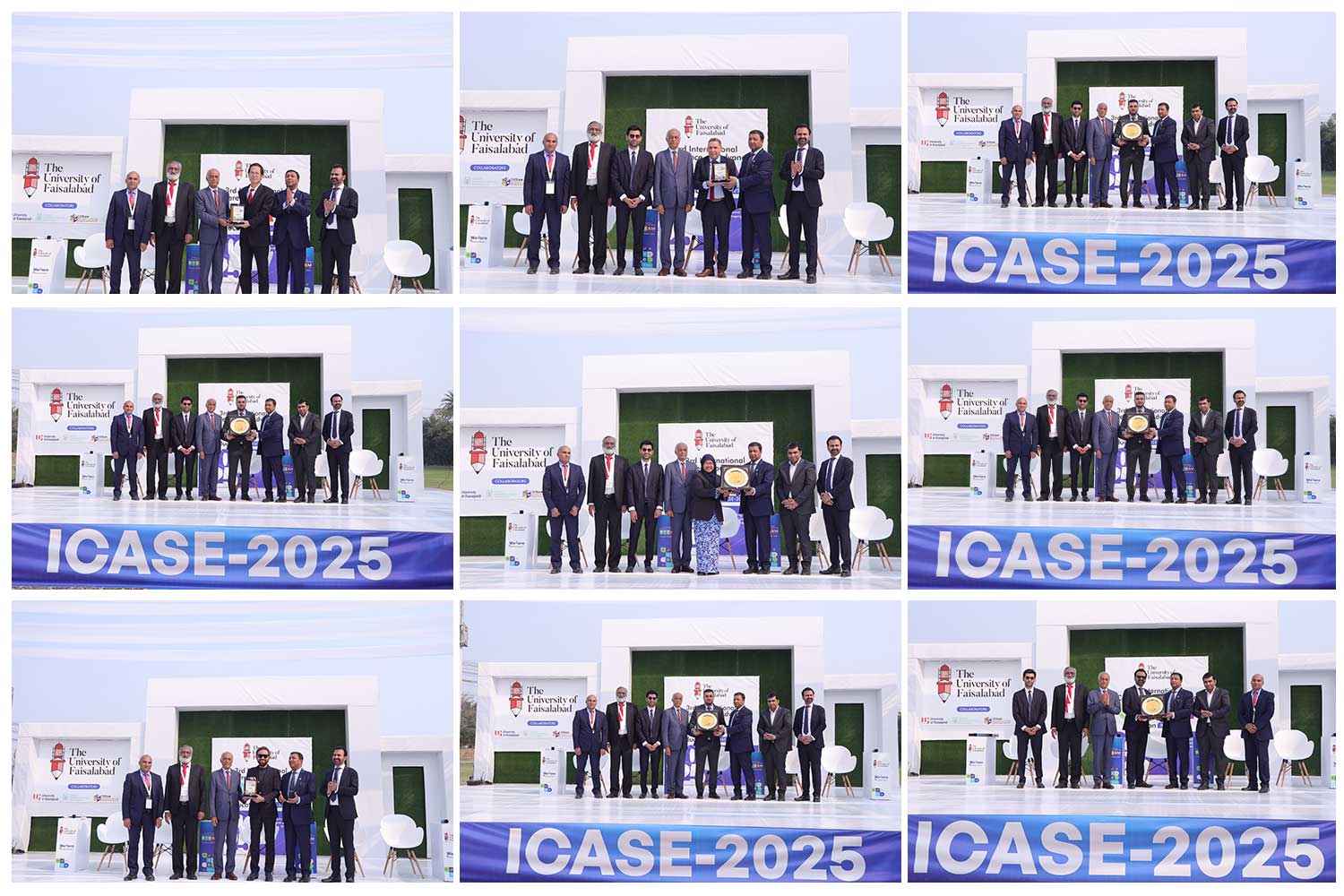
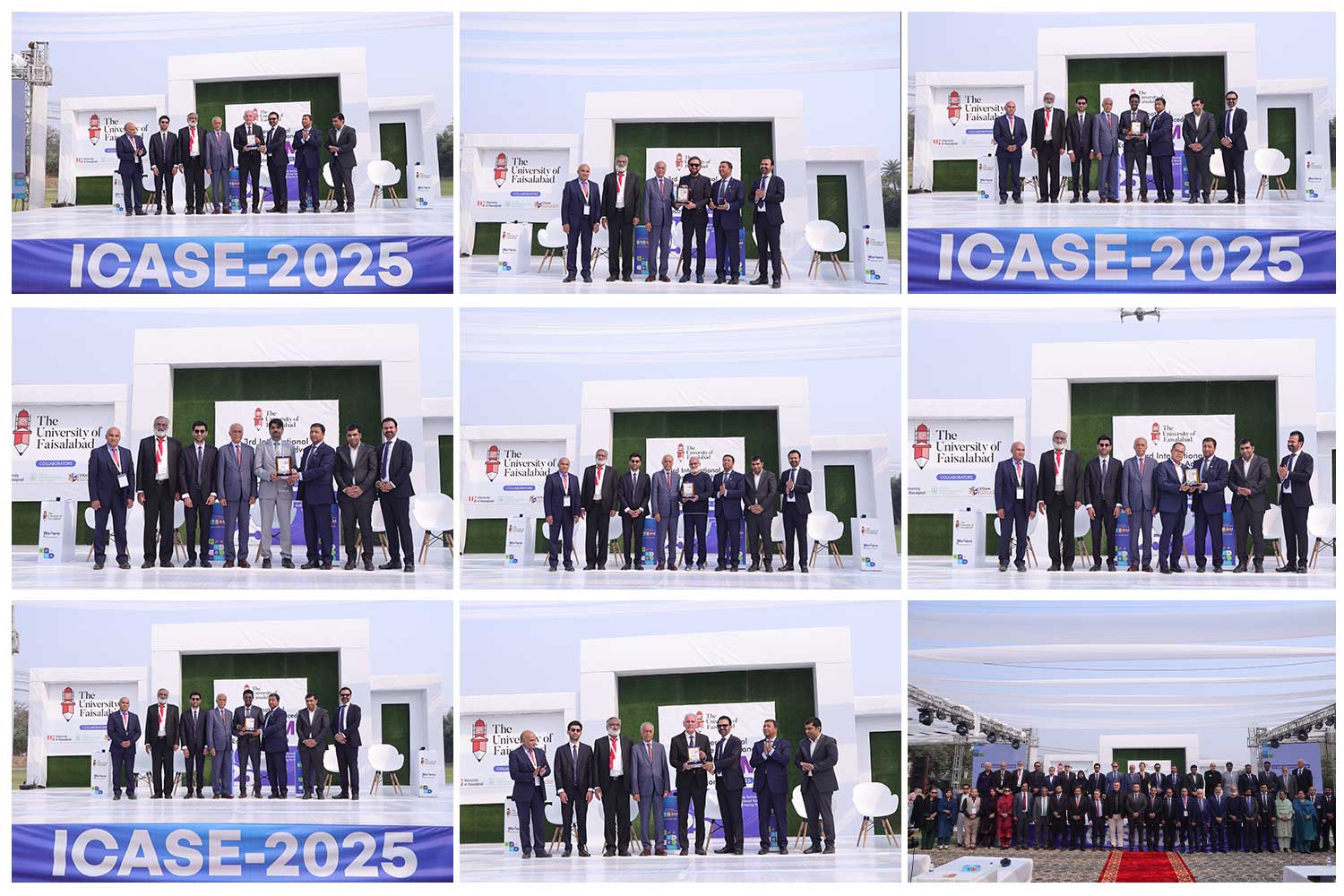
The Soirée Night, organized as part of the STEAM Conference especially for the guests, added a festive and vibrant touch to ICASE 2025. The evening brought together international scholars and students for a lively celebration filled with cultural performances and engaging interactions, energizing the delegates with excitement. The event was graced by prominent dignitaries who addressed the audience, including Dr Muhammad Hamza Amin, Vice Chairman BOG, TUF; Prof Dr Aman Ullah Malik, Rector, TUF; Prof Dr Kanwal Ameen, Vice Chancellor, GCWUF; and Prof Dr Adnan Noor Mian, Vice Chancellor, Information Technology University. Their remarks highlighted the importance of global collaboration, interdisciplinary learning, and the role of STEAM education in shaping a progressive and innovative academic landscape.
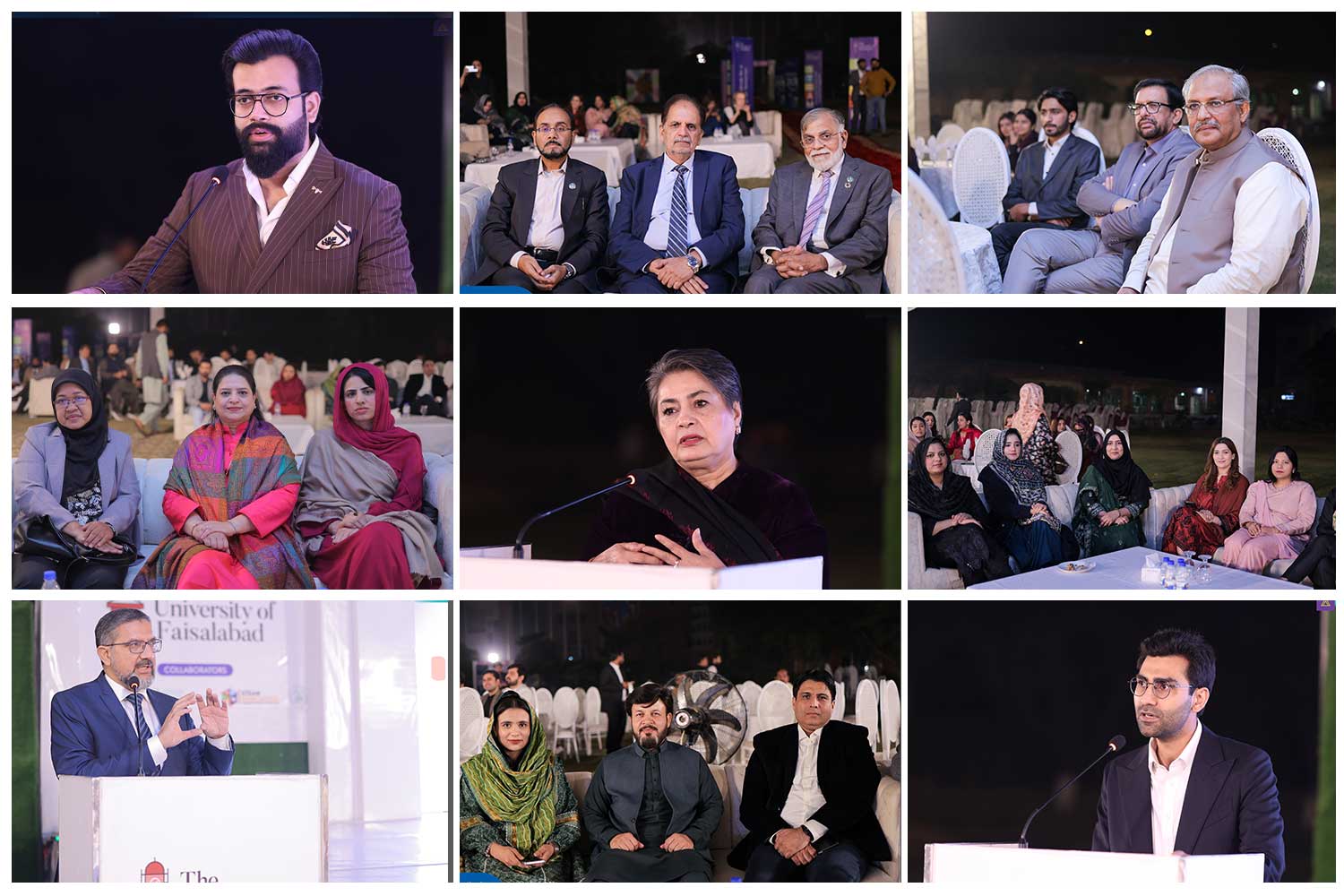
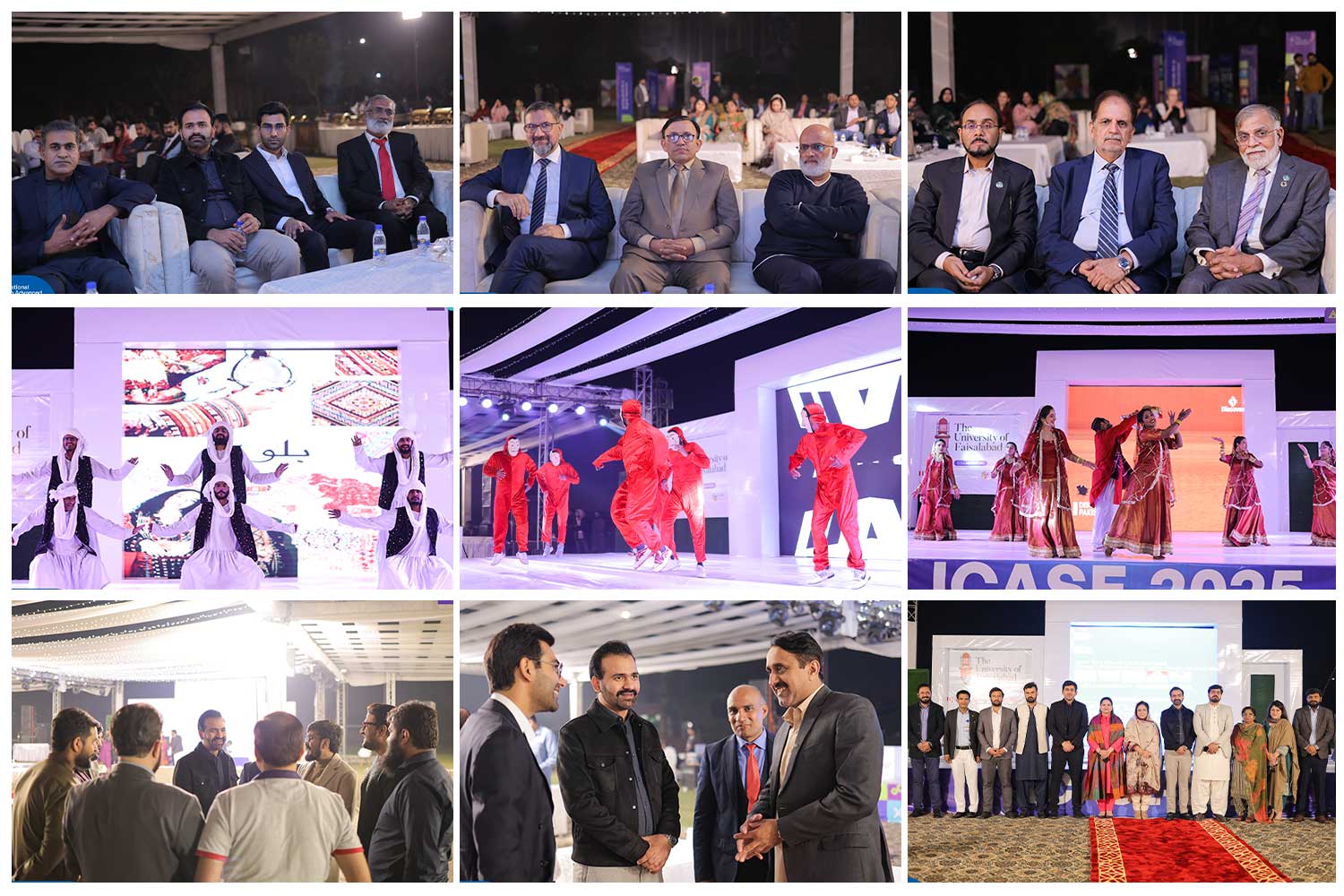
Scientific Sessions:
After the inaugural segments, the 3rd International Conference on Advanced STEAM Education (ICASE 2025) transitioned into a series of dynamic parallel scientific sessions, bringing together global innovators, researchers, and industry experts.
The parallel Computer Science sessions at ICASE 2025 showcased groundbreaking innovations in Artificial Intelligence, Data Science, Autonomous Systems, and Multimodal Deep Learning, drawing global attention toward Pakistan’s accelerating role in advanced computing. Session was chaired by Dr Gufran Khan, CEO of Visibility Bots, Pakistan, and co-chaired by Dr Abdul Rauf from The University of Faisalabad. With the theme “AI, Data Science & Federated Learning” discussion started with a powerful keynote address by Prof Dr Kamran Munir from the University of West England, UK, who shared his insights on “Data Science Without Borders: Driving Innovation in Global R&D.” An invited talk by Muhammad Azhar further explored cross-regional STEAM data integration and its growing role in education and public sector development. The session also featured cutting-edge research presentations highlighting innovations such as deep learning for lung disease detection, multimodal Alzheimer’s prediction, collaborative federated AI, explainable legal NLP systems, generative security frameworks, and private local-language LLM architectures.
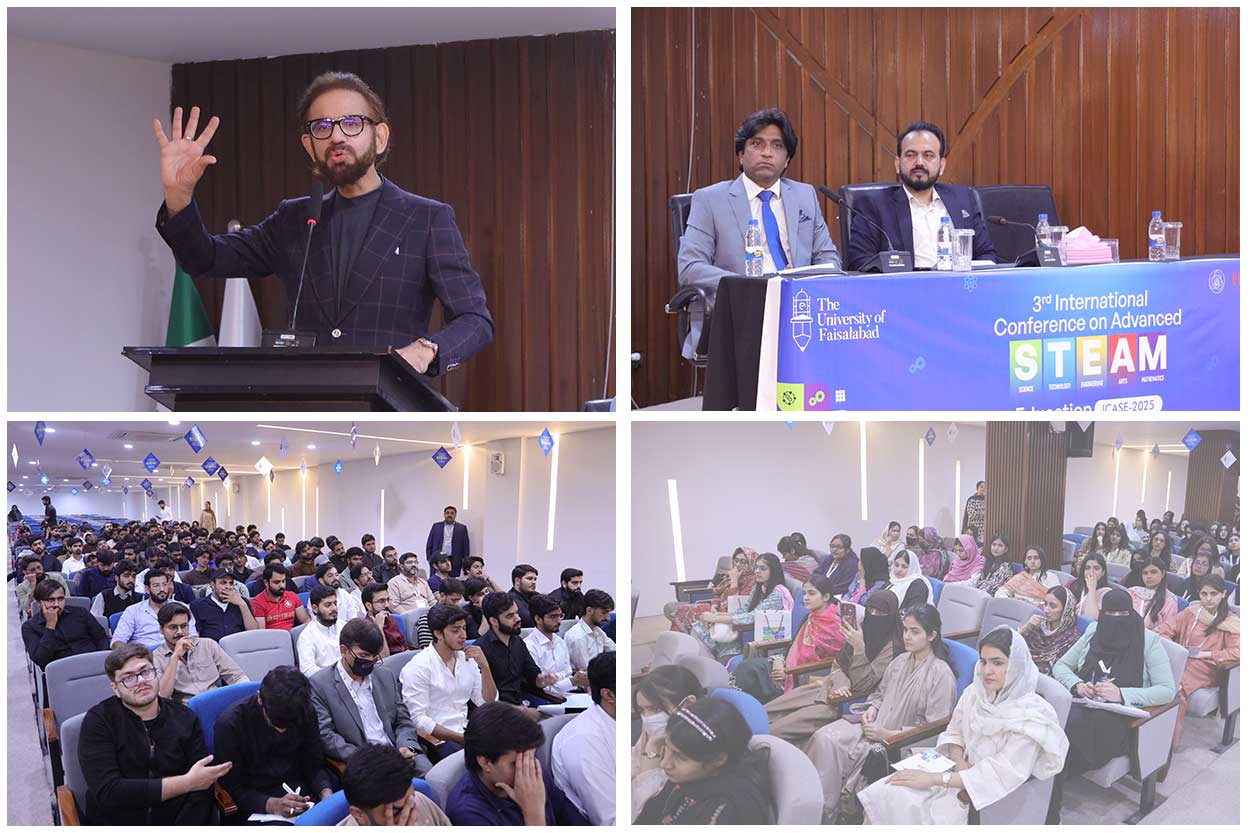
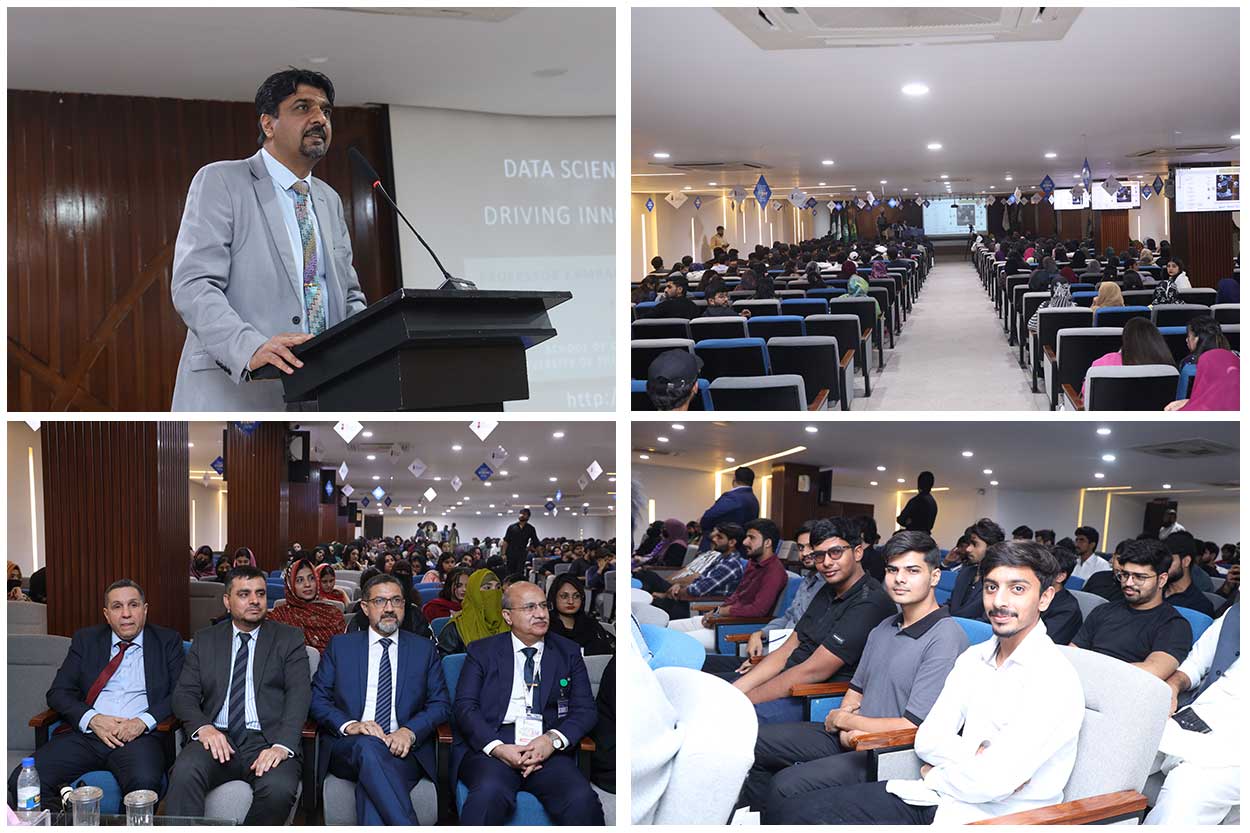
Simultaneously, the second parallel session of Computer Sciences, titled “Autonomous Systems & Multimodal AI,” was chaired by Dr Ramzan Talib from GC University Faisalabad, with Dr Talha Farooq from The University of Faisalabad serving as Co-Chair. Prof Dr Nadeem Javaid from the National Yunlin University of Science & Technology, Taiwan delivered an engaging keynote titled “Autonomous Agents: Is Agentic AI the Next Evolution?” provoking discussion on whether autonomous agents represent true machine intelligence or computational imitation. The session’s thematic research presentations explored future-defining ideas, including explainable AI frameworks, multilingual prompt sensitivity in large models, LIME-based visual classification interpretability, and secure privacy mechanisms for generative AI and LLM usage.
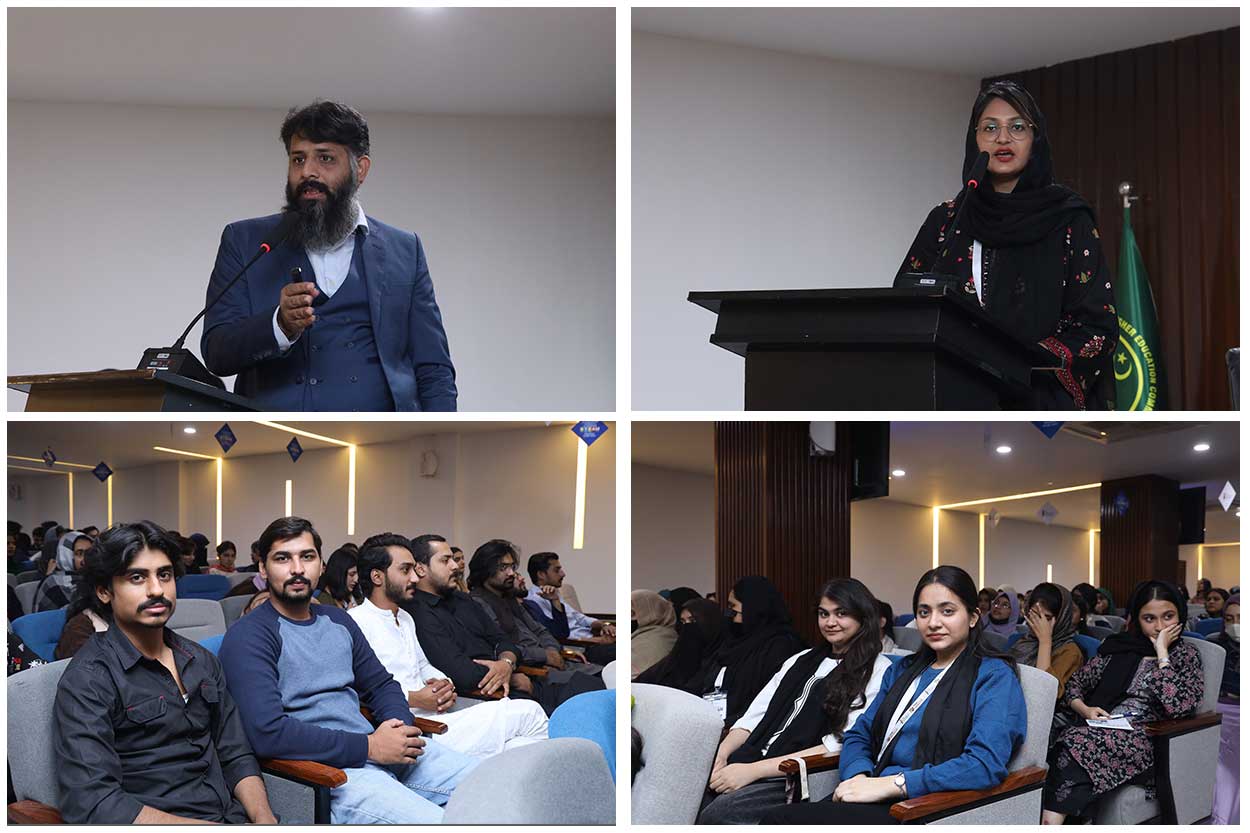
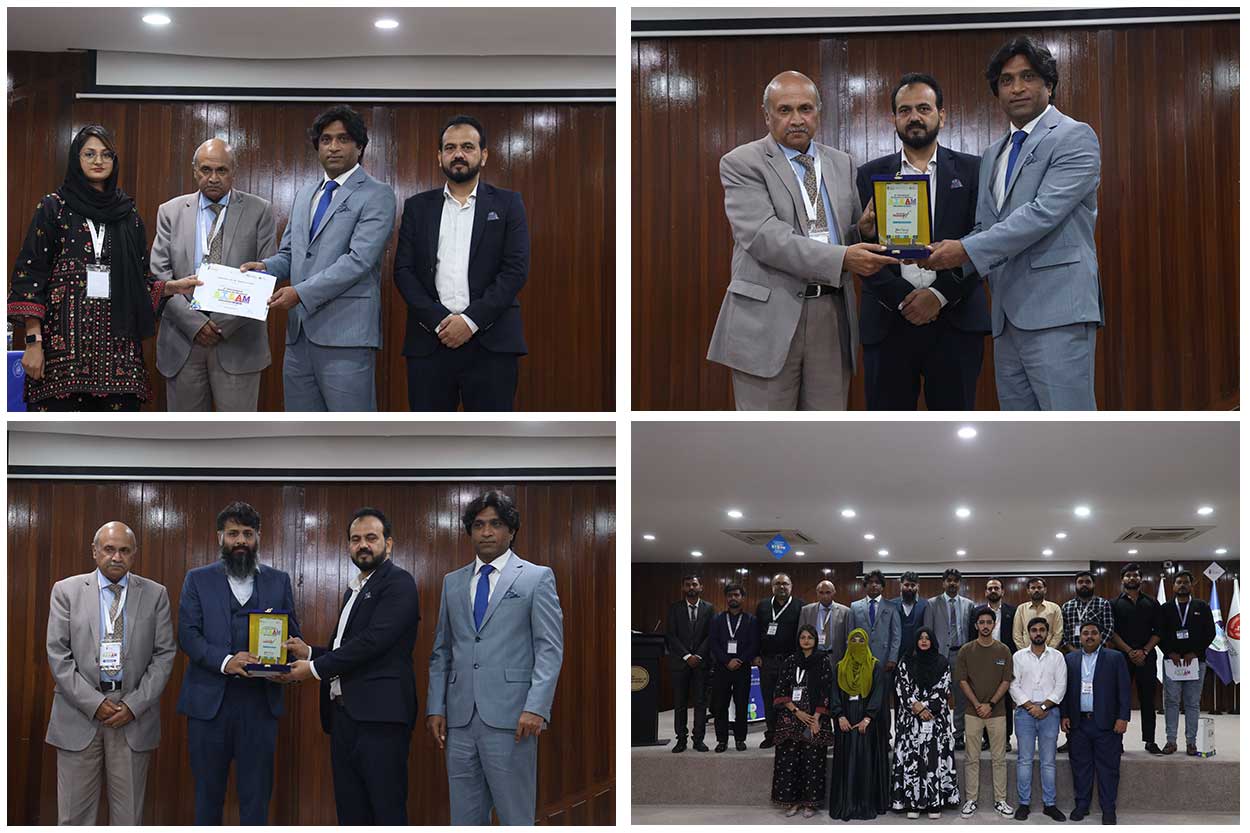
The National Business School (NBS) at the 3rd International Conference on Advanced STEAM Education (ICASE 2025) stood out with three compelling scientific sessions focused on green business practices, agricultural entrepreneurship, post-COVID fintech transformation, and global marketing strategies.
Chaired by Dr Sofia Anwar, GC University Faisalabad, and co-chaired by Dr Usman Ali, The University of Faisalabad, the session opened with a thought-provoking address by Mr Wahaj Siraj, CEO Nayatel, who highlighted the transformative role of STEAM-led leadership in commerce and organizational excellence, emphasizing a corporate mindset that rewards innovation while maintaining ethical accountability. An international invited talk by Prof Mithat Derik from Selcuk University, Türkiye focused on “Effects of Mycotoxins on Food Supply and Management Strategies”, underscoring how food safety is an economic as well as scientific concern. The research presentations featured a strong business-research interface. Scholars explored topics such as circular economy adoption in Pakistan’s industries, sustainable marketing practices, geostrategic shifts in global powers (China vs USA), and the role of green HR strategies in driving employee environmental behavior.
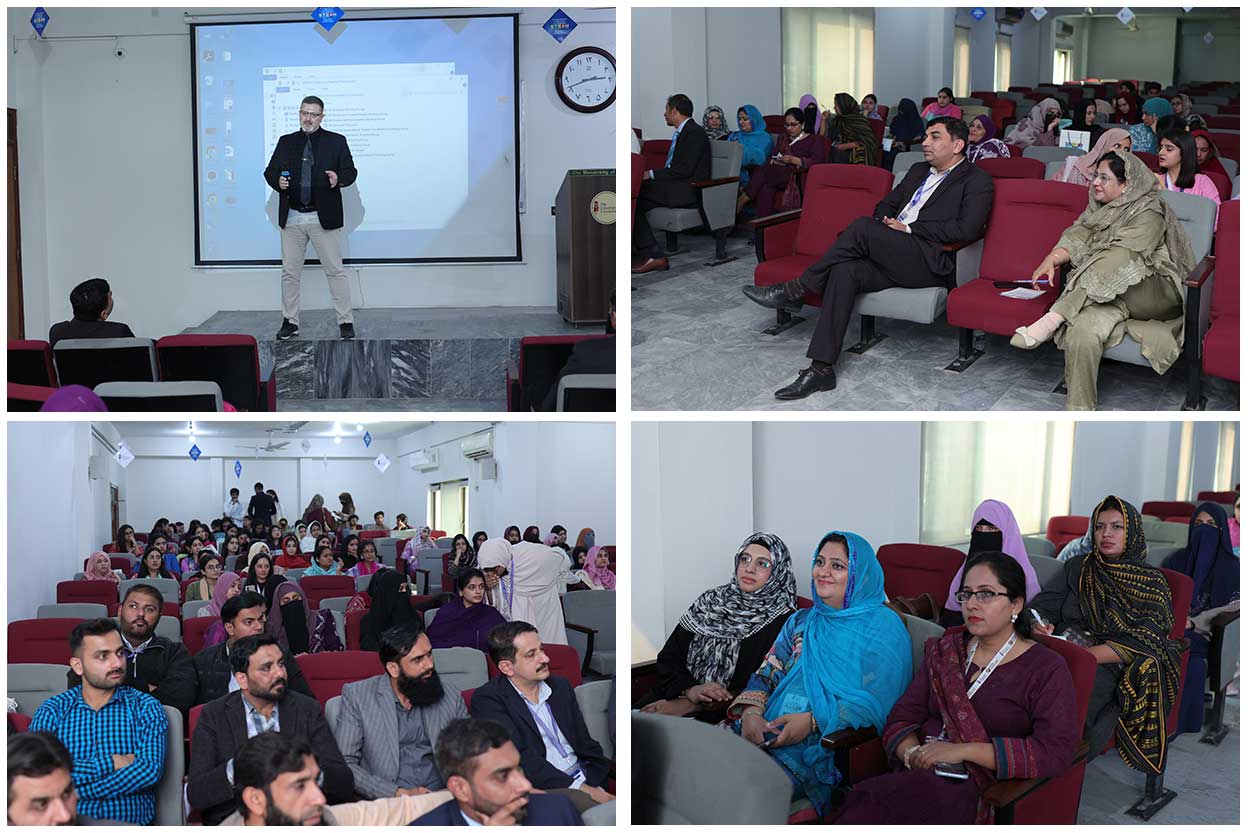
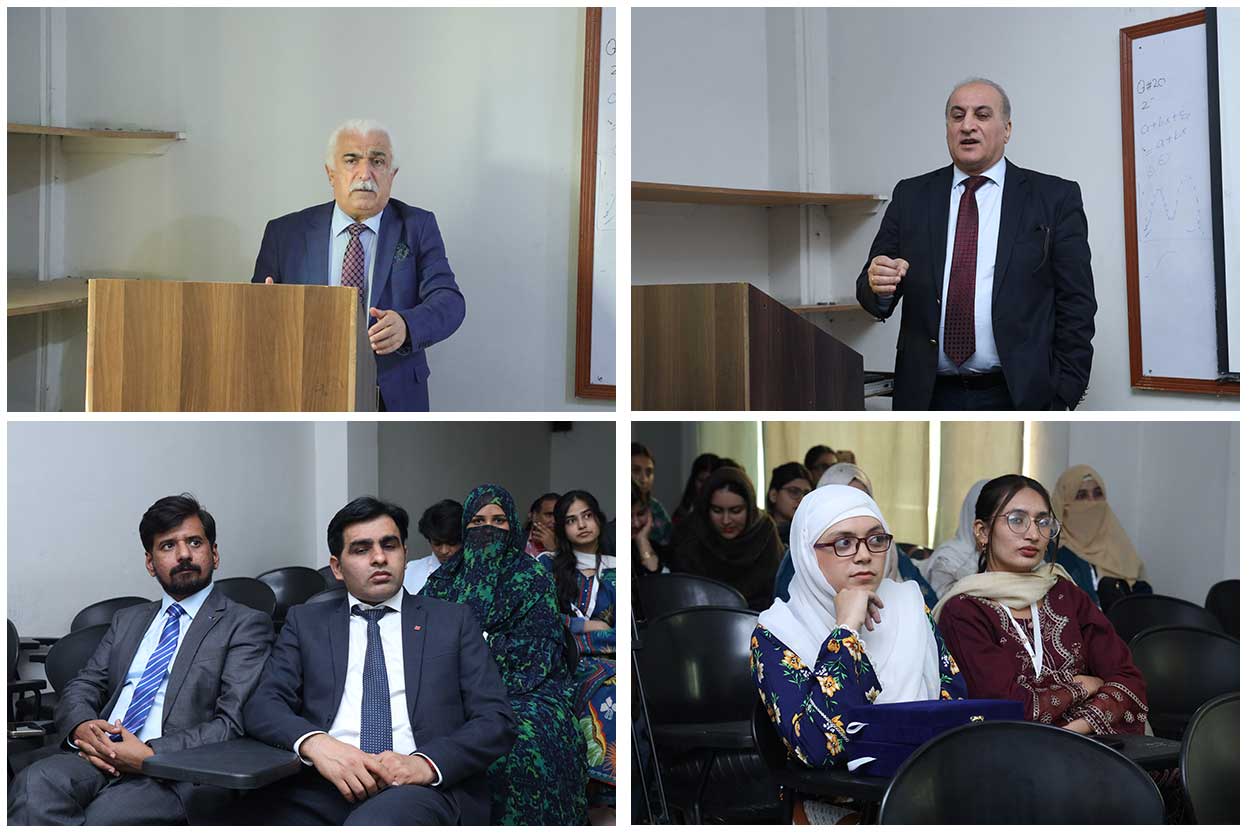
The second session of NBS explored the rapidly evolving agribusiness landscape shaped by STEAM innovation, E-Commerce & Economic Diversification. Session was chaired by Prof Dr Mubashir Mehdi, MNS University of Agriculture, Multan, and Co-Chaired by Dr Muhammad Rizwan Choudhry, The University of Faisalabad. Prof Dr Zhou Deyi from Huazhong Agricultural University, China delivered the keynote titled “E-Commerce: Practice Based Learning,” highlighting how digital marketplaces are creating global opportunities for young agricultural entrepreneurs. Prof Mustafa KAN (Türkiye) expanded this perspective with his invited talk “Cultivating Innovation: Integrating STEAM into Modern Agricultural Business.” Research presentations showcased cutting-edge concepts including farm diversification for financial resilience (Abdullah Hammad), impacts of National Savings Certificates on GDP (Qamar Ul Islam), and regulatory barriers hindering circular economy adoption in family businesses (Sohail Mansha). Another insightful study discussed shifts in agricultural policy and global trade challenges facing Pakistan, advocating stronger partnerships between academia, government, and industry for sustainable food enterprise development.
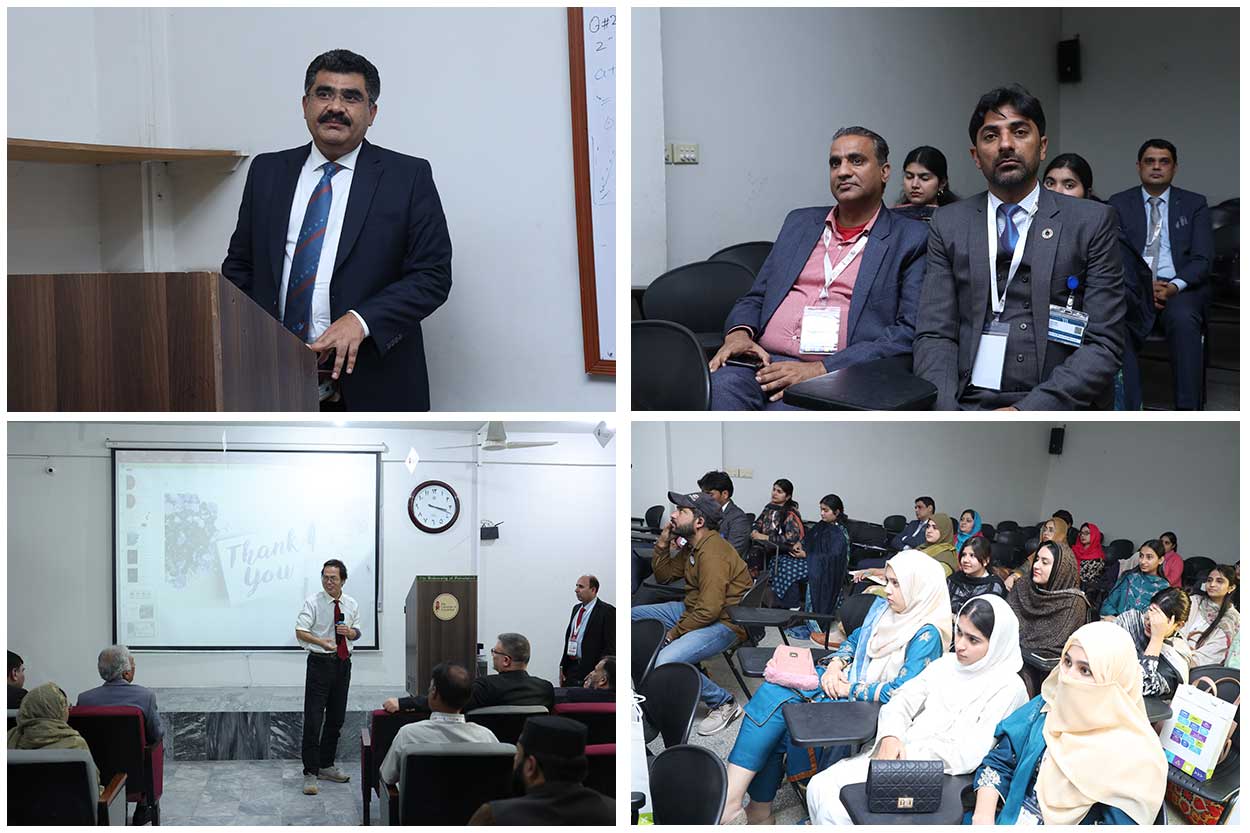
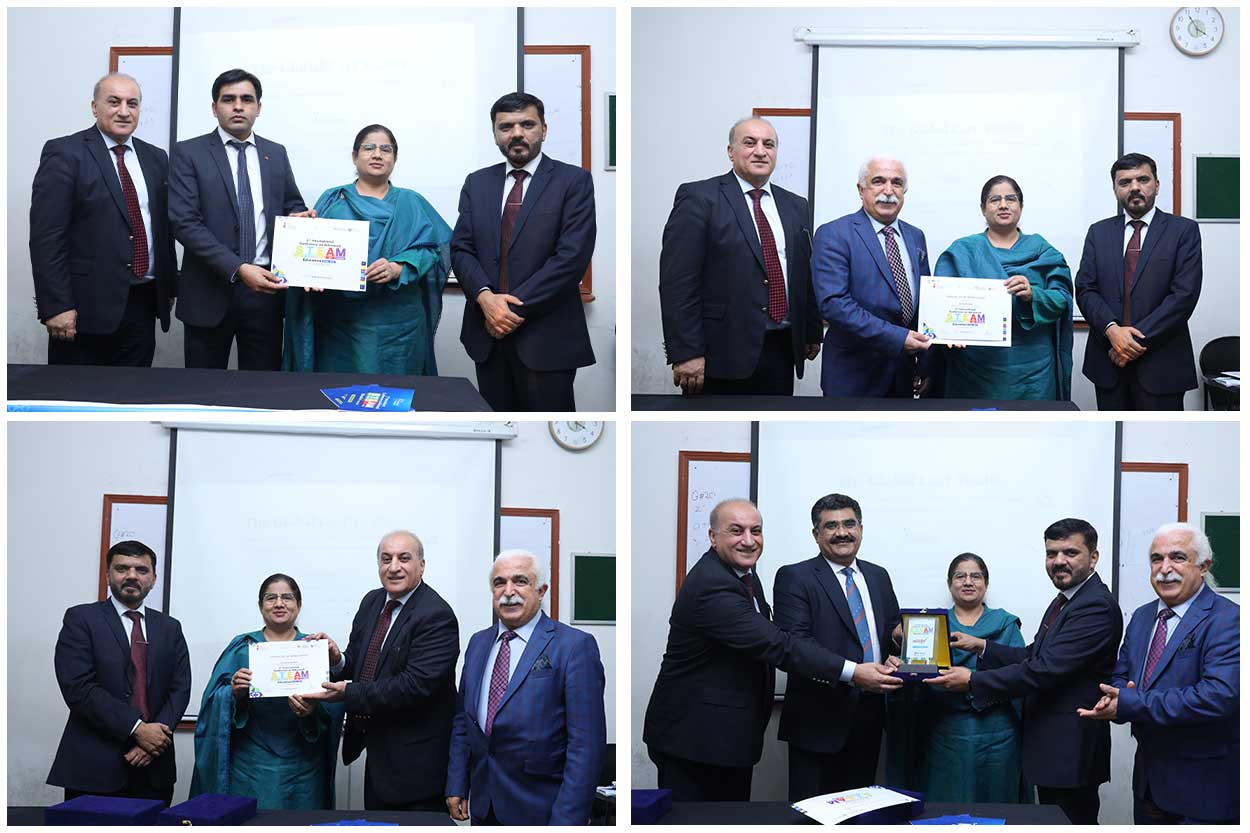
The 3rd session of NBS at ICASE-2025, shifted its attention toward post-COVID business transformation, fintech revolutions, and digital behavioral economics. Chaired by Prof Dr Irfan Ahmad Baig, MNS University of Agriculture, Multan, Co-Chaired by Dr Tariq Jameel, The University of Faisalabad, keynote speaker Prof Dr Mustafa Aslan (Istanbul Bilgi University, Türkiye) addressed “Factors Influencing Entrepreneurial Intention: A Cross-Country Perspective,” revealing comparative trends in youth entrepreneurial motivations across five nations. Dr Amar Razzaq (China) further advanced the discussion through his invited lecture on “Digital Youth Empowerment in Asia’s E-Commerce Models,” presenting how digital platforms shape youth entrepreneurship. Research scholars examined diverse business disruptions, including the rise of fintech reshaping customer experience, the influence of supportive leadership on workplace innovation, and the psychological link between STEAM-driven learning platforms and employee creativity. Additional studies emphasized circular economy strategies in family enterprises and consumer loyalty in post-digital markets, showcasing a future where technology, ethics, and entrepreneurship must work hand-in-hand to meet global business challenges.
